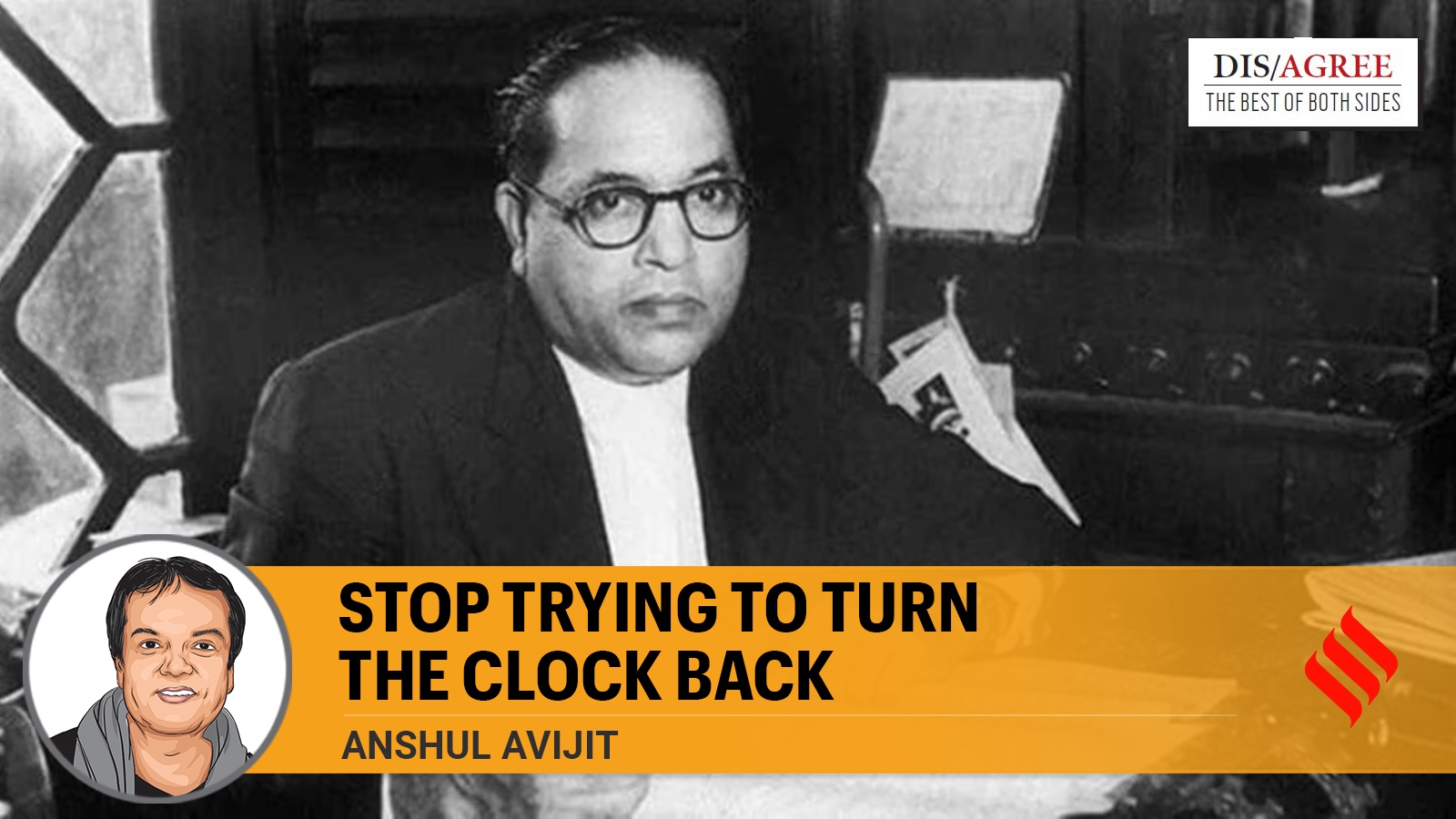
Dec 20, 2024 14:57 IST First published on: Dec 20, 2024 at 08:03 IST
There are only a handful of gods exclusive to the Dalit pantheon. Quite unlike the 33 crore gods traditionally available to caste Hindus to empower their sanctums and protect their faithful. It was a cruel reversal of the religious template, in which worship itself became blasphemous. So, for the Dalits, it’s been a hard-fought selection of their icons, coming after centuries of denial and dispossession, of temple doors being closed on their faces. The Dalit gods are also uniquely historicised and earthly figures, with a provenance of struggle and merit that would invite admiration, if not worship, from far beyond the caste trenches. It’s the new social compact between Dalits and caste Hindus that is the hallmark of Indian modernity — do not demean, do not mock, do not patronise us. Do not make light of a battle for the devotional ideals of others in the arrogance of unearned religious privilege. This compact should not be breached.
The comments by Home Minister Amit Shah in the Rajya Sabha on B R Ambedkar — which suggested a misplaced search for god by Ambedkar’s ardent followers — are, therefore, highly regrettable. This remark, and the reactions that have followed are now being typecast as a political conflict between an outraged Opposition and the defensive treasury benches. The Home Minister’s press conference and the Prime Minister’s counter-attacking tweets, unprecedented in their political history, clearly indicate the panic after the lapse.
But the real story is not that of polarised politics, or the competitive claims to social justice — the roll-call of achievements and recriminations fuelling TV debates. History is well witness to the rough ride of social justice in recent memory, of those who made laws for equity and those who resisted. While the upholders of old social orders are now being exposed, new history books also expunge caste references in order to shield them. The real story is actually about a lingering mindset, more pervasive and more upsetting than we think, which makes remarks such as these slip through.
The god analogy is an appropriate one. In ancient India, the glories of which many invoke, there was joint sovereignty between the king and the deity over land and its people. This supreme alliance, one complementing the other, allowed the exclusionary social system both a divine and administrative sanction. One can argue that the current regime, through its recent consecrations, is implicated in a similar old-world revival. For the conquering rulers, the deity represented the fulcrum of the relationship between the protector and the protected; its absence would serve to invalidate his triumphalisms. If cracks emerged, since no system can be perfectly rigid, the symbiosis was reinforced.
Historically, the Dalits, the “outcastes”, were coerced into this ancient arrangement, and without ever having the benefit of “darshan”: Looking at the deity in the eye and seeking blessings. In fact, their mere presence was a defilement. The search for alternate gods continued and the 16th-century cobbler-mystic Ravidas, whose devotional yet irreverent verses braved the minefield of caste, struck a chord with the changing times. Many were also included in the Guru Granth Sahib. But it was only in the 20th century, when the self-affirming need for community gods and heroes became acute, that Ravidas got firmly entrenched in Dalit consciousness. Decolonisation and democracy threw more icons, this time political actors involved in both social justice and nation-building. Among the many notables were Jagjivan Ram, who rose to become Deputy Prime Minister, and B R Ambedkar, under whom India’s Constitution, its most sacred document, was penned. The latter is the icon at the centre of debate.
Here were icons who had earned their divine pedestals, who had had near-impossible achievements, and for their followers, managed to squeeze water from a stone. If anything, this divination is not merely performative, it becomes a form of ritualistic insurgency — a time to reboot privileges, force equity and compel social change. In the old order of kings and priests, divination could only be affirmed by its negation at its polar end. Dalit worship of its own idols not only subverts this idea but offers disassociated alternatives. For the vanguards of the status quo, this idea is unthinkable. And far too many lurk among us.
Reading tea leaves is not necessary. Comments like these will continue to de-privilege chosen icons and as a result, de-historicise their loyalists. At the core of this debate is the scourge of modern India, the caste system — the greatest betrayal of humanity ever conceived by man.
The writer is national spokesperson, Indian National Congress
Why should you buy our Subscription?
You want to be the smartest in the room.
You want access to our award-winning journalism.
You don’t want to be misled and misinformed.
Choose your subscription package


